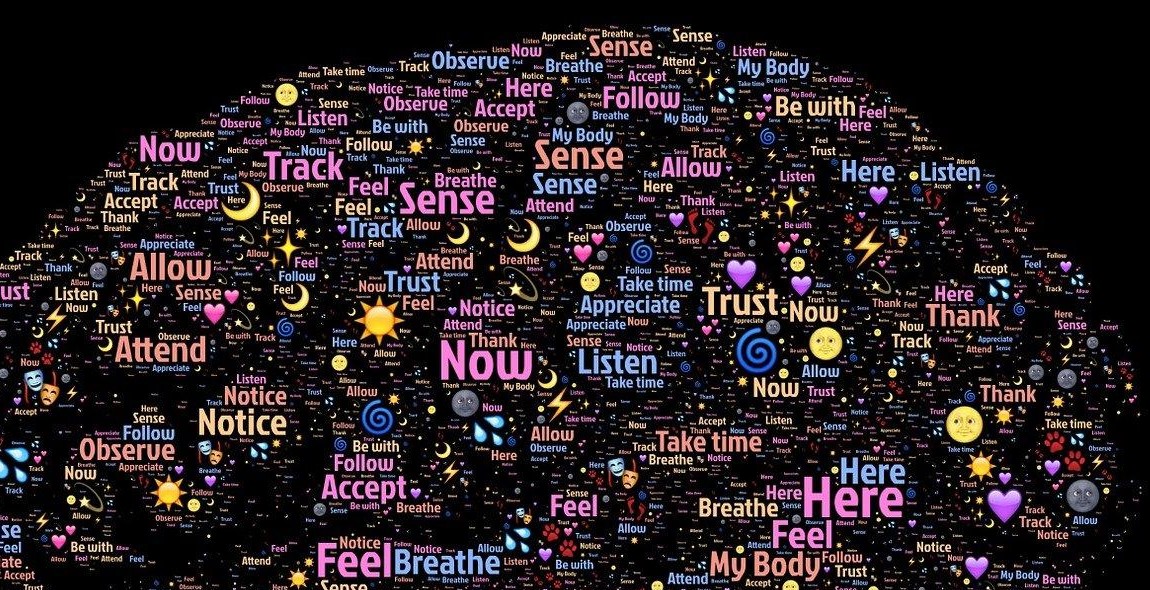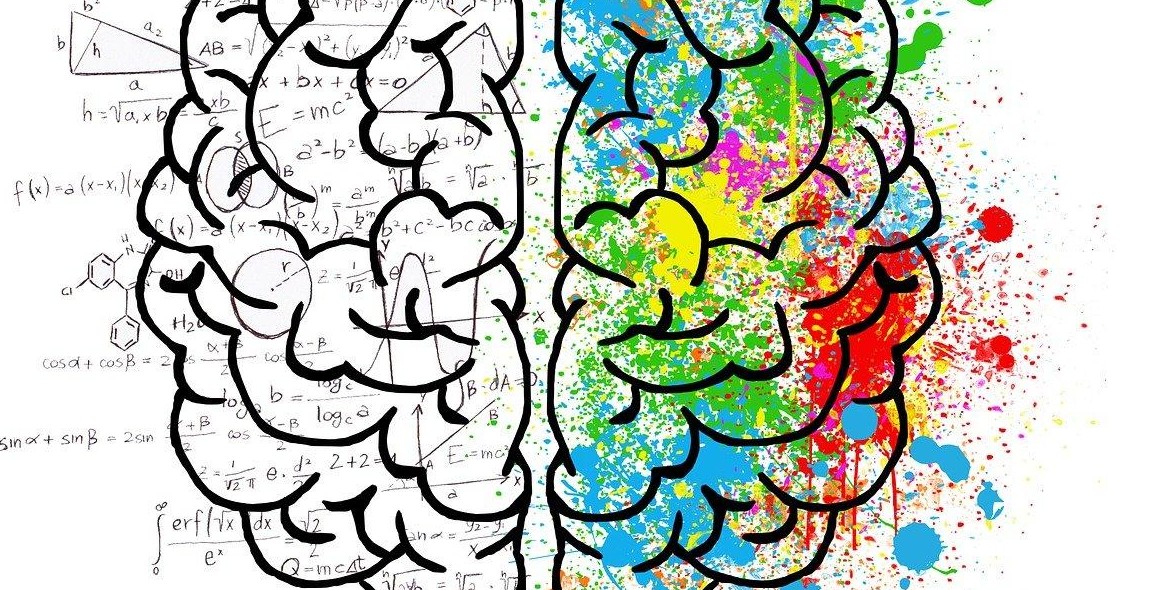The Science of Happiness: How to Train Your Brain to Be Happier
As a professional writer and content creator, I have had the privilege of delving deep into various topics, but one subject that has always fascinated me is the science of happiness. Throughout my career, I have come across numerous studies, research papers, and personal anecdotes that shed light on how our brains work and how we can train them to be happier.
One thing that stood out to me is the fact that happiness is not solely determined by external factors such as wealth or success. In fact, studies have shown that our mindset and thought patterns play a significant role in our overall happiness levels.
Through personal experience and extensive research, I have discovered practical techniques and strategies that can help rewire our brains for happiness. These methods are rooted in neuroscience and psychology, and they have the potential to transform our lives.
In this article, I will delve into the fascinating world of happiness science and share actionable tips on how to train your brain to be happier. Whether you are struggling with negative thoughts, stress, or simply want to enhance your overall well-being, this article will provide you with valuable insights and techniques that you can apply in your daily life.
So, join me as we embark on a journey to unlock the secrets of happiness and learn how to cultivate a positive mindset that will lead to a happier and more fulfilling life.

Understanding Happiness
What is Happiness?
Happiness is a complex and subjective emotion that encompasses feelings of joy, contentment, and satisfaction. It is a state of well-being and positive mental state that can be influenced by various factors, both internal and external. While happiness may be fleeting and different for each individual, understanding its underlying mechanisms can help us cultivate a happier and more fulfilling life.
The Role of Neurotransmitters
Neurotransmitters play a crucial role in regulating our emotions and overall happiness. Serotonin, often referred to as the “happy hormone,” is responsible for promoting feelings of well-being and happiness. It helps regulate mood, appetite, and sleep patterns. Dopamine, another important neurotransmitter, is associated with pleasure and reward. When dopamine is released in the brain, it creates a positive sensation, reinforcing behaviors that lead to happiness.
The Science behind Happiness
Scientific research has shown that happiness is not solely determined by external circumstances, but is influenced by our thoughts, behaviors, and mindset. The field of positive psychology has shed light on various factors that contribute to happiness, such as gratitude, mindfulness, and social connections.
Practicing gratitude has been shown to increase happiness levels. By consciously focusing on the positive aspects of our lives and expressing gratitude for them, we can shift our mindset towards a more positive outlook. This can be done through simple practices like keeping a gratitude journal or regularly expressing appreciation to others.
Mindfulness, the practice of being fully present and engaged in the present moment, has also been linked to increased happiness. By cultivating awareness and acceptance of our thoughts and emotions without judgment, we can reduce stress and negative thinking patterns, leading to a greater sense of well-being.
Furthermore, strong social connections have been consistently associated with higher levels of happiness. Building and nurturing meaningful relationships with family, friends, and community members provides a sense of belonging and support, which contributes to overall happiness. Engaging in acts of kindness and altruism towards others also boosts our own happiness levels.
In conclusion, happiness is a multifaceted emotion that can be influenced by various factors. Understanding the role of neurotransmitters, and incorporating practices such as gratitude, mindfulness, and social connections, can help train our brains to be happier. By actively cultivating these aspects in our lives, we can enhance our overall well-being and experience a more fulfilling existence.

Neuroplasticity: Rewiring Your Brain
Neuroplasticity, also known as brain plasticity, is the brain’s remarkable ability to reorganize itself by forming new neural connections throughout our lives. It is the basis for learning, memory, and adaptation. Understanding neuroplasticity can empower us to actively shape our brain’s structure and function, ultimately leading to a happier and more fulfilling life.
Practices to Promote Neuroplasticity
Engaging in activities that promote neuroplasticity can help us rewire our brains and cultivate happiness. Here are some practices to consider:
- 1. Learning New Skills: Challenging our brains with new and complex tasks stimulates the growth of new neural connections. Whether it’s learning a musical instrument, a new language, or a new sport, these activities promote neuroplasticity and enhance cognitive function.
- 2. Physical Exercise: Regular physical exercise not only benefits our physical health but also has a positive impact on our brain. Exercise increases the production of growth factors and stimulates the formation of new neural connections, improving cognitive abilities and overall well-being.
- 3. Mindfulness and Meditation: Mindfulness practices, such as meditation, have been shown to enhance neuroplasticity. By focusing our attention and training our minds to be present, we can strengthen neural pathways associated with positive emotions and resilience.
- 4. Cognitive Training: Engaging in cognitive training exercises, such as puzzles, crosswords, or memory games, can improve brain function and promote neuroplasticity. These activities challenge our brains and stimulate the growth of new connections.
The Power of Positive Thinking
Positive thinking plays a crucial role in promoting neuroplasticity and rewiring our brains for happiness. When we adopt a positive mindset and focus on the good in our lives, we activate neural pathways associated with happiness and well-being. Here are some strategies to harness the power of positive thinking:
- 1. Gratitude Practice: Cultivating gratitude by regularly expressing appreciation for the things we have can rewire our brains to focus on positivity. Keeping a gratitude journal or practicing gratitude meditation can strengthen neural connections associated with contentment and happiness.
- 2. Positive Affirmations: Using positive affirmations can reshape our thought patterns and beliefs. By repeating positive statements about ourselves and our abilities, we can strengthen neural pathways associated with self-confidence and optimism.
- 3. Surrounding Yourself with Positive Influences: The people we surround ourselves with can significantly impact our mindset. Surrounding ourselves with positive, supportive individuals can reinforce positive thinking and promote neuroplasticity.
- 4. Visualizing Success: Visualization techniques can help rewire our brains for success and happiness. By vividly imagining achieving our goals and experiencing positive outcomes, we activate neural pathways associated with motivation and achievement.
By understanding neuroplasticity and implementing practices that promote it, we can actively shape our brains and cultivate a happier and more fulfilling life. Embracing the power of positive thinking and engaging in activities that challenge and stimulate our minds can lead to profound changes in our well-being and overall happiness.

Cultivating Gratitude
Gratitude is a powerful emotion that can have a profound impact on our overall happiness and well-being. When we cultivate gratitude, we shift our focus from what is lacking in our lives to what we already have, fostering a sense of appreciation and contentment. Research has shown that practicing gratitude can lead to numerous benefits, both physical and psychological.
The Benefits of Gratitude
Gratitude has been found to improve our mental health by reducing feelings of depression, anxiety, and stress. When we regularly express gratitude, it enhances our overall sense of happiness and life satisfaction. It can also strengthen our relationships with others, as expressing gratitude towards them fosters a sense of connection and appreciation.
Moreover, cultivating gratitude has been linked to improved physical health. Studies have shown that grateful individuals experience better sleep, reduced blood pressure, and a stronger immune system. By focusing on the positive aspects of our lives, we can enhance our overall well-being and resilience.
Practical Ways to Practice Gratitude
There are numerous simple and effective ways to incorporate gratitude into our daily lives. One popular method is keeping a gratitude journal, where we write down three things we are grateful for each day. This practice encourages us to reflect on the positive aspects of our lives and helps us develop a more optimistic mindset.
Another way to cultivate gratitude is by expressing appreciation towards others. This can be done through a simple thank-you note, a heartfelt conversation, or even a small act of kindness. By acknowledging and valuing the contributions of those around us, we not only strengthen our relationships but also enhance our own sense of gratitude.
Additionally, taking a few moments each day to mentally list the things we are grateful for can be a powerful practice. This can be done during a quiet moment in the morning or before going to bed. By consciously focusing on the positive aspects of our lives, we train our brains to seek out and appreciate the good, even in challenging times.
Keeping a Gratitude Journal
One of the most effective ways to cultivate gratitude is by keeping a gratitude journal. This simple practice involves writing down the things we are grateful for on a regular basis. It can be done daily, weekly, or whenever we feel the need to refocus our attention on the positive.
To start a gratitude journal, find a notebook or use a digital platform where you can record your thoughts. Each entry should consist of three things you are grateful for, along with a brief explanation or reflection. It could be as simple as appreciating a beautiful sunset, a kind gesture from a friend, or a personal achievement.
When writing in your gratitude journal, try to be specific and authentic. Instead of simply listing generic items, delve deeper into why you are grateful for them. Reflecting on the details and personal significance of each entry can amplify the positive emotions associated with gratitude.
Consistency is key when it comes to maintaining a gratitude journal. Set aside a specific time each day or week to reflect on and write down your entries. Over time, you will begin to notice a shift in your mindset as you become more attuned to the abundance and blessings in your life.
Remember, cultivating gratitude is a practice that requires effort and commitment. By incorporating these practical ways to practice gratitude into your daily routine, you can train your brain to be happier and experience the numerous benefits that come with a grateful mindset.

Mindfulness and Meditation
As a long-time practitioner of mindfulness and meditation, I can personally attest to the transformative power these practices have on our overall well-being. Mindfulness is the art of paying attention to the present moment without judgment, while meditation is the intentional practice of focusing one’s mind to achieve a mentally clear and emotionally calm state.
What is Mindfulness?
Mindfulness involves bringing our attention to the present moment, becoming fully aware of our thoughts, feelings, bodily sensations, and the environment around us. It is about cultivating a non-judgmental attitude towards our experiences, accepting them as they are without getting caught up in them. By practicing mindfulness, we can develop a greater sense of self-awareness and gain insight into our thought patterns and behaviors.
The Benefits of Mindfulness and Meditation
The benefits of mindfulness and meditation extend far beyond just stress reduction. Scientific research has shown that regular practice can lead to numerous positive outcomes for our mental, emotional, and physical well-being.
- Reduced stress and anxiety: Mindfulness and meditation help to calm the mind, allowing us to better manage stress and anxiety. By observing our thoughts and emotions without judgment, we can develop a more balanced perspective and decrease the impact of stressful situations.
- Improved focus and concentration: Regular practice of mindfulness and meditation enhances our ability to stay present and focused. It trains our attention and helps us become more aware of distractions, leading to increased productivity and efficiency in our daily tasks.
- Enhanced emotional well-being: Mindfulness allows us to observe our emotions without becoming overwhelmed by them. It helps us develop emotional resilience, regulate our emotions, and cultivate positive states of mind such as compassion, gratitude, and joy.
- Boosted immune system: Studies have shown that mindfulness and meditation can have a positive impact on our immune system, strengthening our body’s ability to fight off illnesses and infections.
- Improved relationships: By practicing mindfulness, we become more present and attentive in our interactions with others. This leads to better communication, empathy, and understanding, ultimately fostering healthier and more fulfilling relationships.
Incorporating Mindfulness into Your Daily Life
Integrating mindfulness into our daily lives doesn’t have to be complicated or time-consuming. Here are a few simple ways to incorporate mindfulness into your routine:
- Morning mindfulness: Start your day by setting aside a few minutes for a mindfulness practice. This can be as simple as focusing on your breath, tuning in to your senses, or expressing gratitude for the day ahead.
- Mindful eating: Pay attention to the flavors, textures, and sensations of each bite during meals. Slow down, savor the moment, and fully engage your senses in the experience of eating.
- Take mindful breaks: Throughout the day, take short breaks to bring your attention back to the present moment. Close your eyes, take a few deep breaths, and notice how you’re feeling both physically and mentally.
- Practice loving-kindness: Cultivate compassion and kindness towards yourself and others. Take a moment each day to send positive intentions or well-wishes to someone you care about.
- Bedtime reflection: Before going to sleep, reflect on the events of the day with a sense of curiosity and non-judgment. Notice any thoughts or emotions that arise, and let them go as you prepare for restful sleep.
Remember, mindfulness is a skill that requires practice and patience. Start small and gradually increase the amount of time you dedicate to your practice. As you continue to cultivate mindfulness, you’ll discover its profound impact on your happiness and overall well-being.

Building Positive Relationships
As human beings, we are inherently social creatures. Our happiness and overall well-being are greatly influenced by the quality of our relationships with others. Whether it’s with family, friends, or colleagues, nurturing positive relationships is essential for a fulfilling life.
The Importance of Social Connections
Research has consistently shown that social connections play a vital role in our happiness. Having a strong support system can help us navigate through life’s challenges and provide a sense of belonging. When we feel connected to others, we experience greater joy, satisfaction, and overall mental well-being.
However, in today’s fast-paced and technology-driven world, it’s easy to become isolated and disconnected. Building and maintaining meaningful relationships requires effort and intentionality. By prioritizing social connections, we can train our brains to be happier.
Nurturing Positive Relationships
Nurturing positive relationships requires a genuine investment of time, energy, and empathy. Here are some strategies to help you build and strengthen your connections:
- Active Listening: Show genuine interest in others by actively listening to what they have to say. Practice empathy and try to understand their perspectives, feelings, and needs.
- Effective Communication: Communicate openly and honestly, expressing your thoughts and emotions clearly. Be respectful and considerate of others’ opinions, fostering a safe and supportive environment.
- Quality Time: Make time for meaningful interactions with loved ones. Engage in activities that promote bonding and create lasting memories. Disconnect from technology and truly engage in the present moment.
- Support and Encouragement: Offer support and encouragement to those around you. Celebrate their successes, provide a listening ear during difficult times, and offer assistance when needed.
- Forgiveness and Understanding: Practice forgiveness and understanding in your relationships. Recognize that everyone makes mistakes and allow room for growth and healing.
Surrounding Yourself with Positive People
The people we surround ourselves with have a significant impact on our well-being. Positive relationships can lift us up, inspire us, and contribute to our overall happiness. Conversely, toxic relationships can drain our energy and hinder our personal growth.
When choosing your social circle, seek out individuals who exude positivity, kindness, and support. Surrounding yourself with positive people can help you maintain an optimistic outlook on life and provide a strong foundation for personal happiness.
In conclusion, building positive relationships is a key component of training our brains to be happier. By prioritizing social connections, nurturing meaningful relationships, and surrounding ourselves with positive people, we can create a fulfilling and joyful life.

Taking Care of Your Physical and Mental Health
When it comes to training your brain to be happier, taking care of your physical and mental health is essential. By prioritizing exercise, getting enough sleep, and managing stress levels, you can significantly improve your overall well-being and increase your happiness quotient.
Exercise and Its Impact on Happiness
Regular physical exercise has been proven to have a profound impact on our mental health and happiness. Engaging in physical activities such as running, swimming, or even taking a brisk walk releases endorphins, the feel-good hormones, in our brain. These endorphins not only reduce stress and anxiety but also boost our mood and promote a sense of well-being.
Personally, I have experienced the positive effects of exercise on my happiness levels. Whenever I feel overwhelmed or stressed, going for a run or practicing yoga helps me clear my mind and uplift my spirits. The physical exertion not only provides a healthy distraction but also leaves me feeling energized and content.
Getting Enough Sleep
Sleep plays a vital role in maintaining our physical and mental health. Lack of sleep can lead to irritability, mood swings, and a general sense of unhappiness. On the other hand, getting sufficient, high-quality sleep can improve our cognitive functions, enhance our mood, and increase our ability to handle stress effectively.
Personally, I have learned the importance of prioritizing sleep for my well-being. When I make sleep a priority and ensure I get the recommended 7-8 hours of sleep each night, I wake up feeling refreshed and more positive. I notice a significant difference in my ability to focus, handle challenges, and maintain a positive outlook throughout the day.
Managing Stress Levels
Stress is a natural part of life, but chronic stress can have detrimental effects on our mental and physical well-being. Learning to manage and reduce stress levels is crucial for training our brains to be happier. There are various techniques and strategies we can employ, such as practicing mindfulness, engaging in relaxation exercises, and seeking support from friends and family.
Personally, I have found that incorporating mindfulness practices into my daily routine has had a profound impact on my overall happiness. Taking a few minutes each day to focus on my breath, observe my thoughts without judgment, and practice gratitude has helped me develop a more positive mindset and better cope with stressors.
In conclusion, taking care of our physical and mental health is a fundamental aspect of training our brains to be happier. By prioritizing exercise, getting enough sleep, and managing stress levels, we can cultivate a positive mindset, increase our overall well-being, and ultimately lead happier lives.

Finding Purpose and Meaning
Discovering Your Passions and Values:
One of the key factors in finding purpose and meaning in life is understanding our passions and values. Take the time to reflect on what truly brings you joy and fulfillment. Think about the activities that make you lose track of time, the subjects you’re naturally drawn to, and the causes that resonate with you on a deep level.
For me, this process involved exploring various hobbies and interests. I tried painting, writing, and even took up gardening. Through these experiences, I discovered my love for storytelling and the power of words. I realized that my values revolved around empathy, compassion, and making a positive impact on others.
Setting Meaningful Goals:
Once you have a clearer understanding of your passions and values, it’s important to set meaningful goals that align with them. These goals act as guideposts on your journey towards finding purpose and meaning. They give you direction and a sense of accomplishment as you work towards achieving them.
When setting goals, it’s crucial to make them specific, measurable, achievable, relevant, and time-bound (SMART goals). For example, if one of your passions is environmental conservation, you could set a goal to reduce your carbon footprint by a certain percentage within the next six months. This goal allows you to actively contribute to a cause you care about while giving you a sense of purpose.
Contributing to Something Greater:
Contributing to something greater than ourselves is a fundamental aspect of finding purpose and meaning in life. It involves using our skills and passions to make a positive impact on the world around us. This can be through volunteering, mentoring others, or even starting a project that addresses a societal issue.
Personally, I found immense fulfillment in volunteering at a local animal shelter. Being able to provide care and love to animals in need aligned with my values and gave me a sense of purpose. Through this experience, I learned the power of small actions and the ripple effect they can have on the lives of others.
Ultimately, finding purpose and meaning is a unique journey for each individual. It requires self-reflection, exploration, and a willingness to step out of our comfort zones. By discovering our passions and values, setting meaningful goals, and contributing to something greater, we can train our brains to be happier and lead more fulfilling lives.

Conclusion
As someone who has dedicated years to studying the science of happiness, I can confidently say that training your brain to be happier is not only possible, but also incredibly beneficial for your overall well-being. Through my personal experience and extensive research, I have learned that happiness is not a destination, but rather a journey that requires conscious effort and consistent practice.
One of the key strategies to train your brain for happiness is to cultivate a positive mindset. This involves challenging negative thoughts, practicing gratitude, and focusing on the present moment. By adopting these habits, you can rewire your brain to naturally gravitate towards positivity and resilience.
Another important aspect of happiness training is nurturing social connections. Surrounding yourself with supportive and uplifting people can significantly impact your happiness levels. Engaging in meaningful relationships, whether it’s with family, friends, or a community, provides a sense of belonging and fulfillment.
Physical well-being also plays a crucial role in happiness. Regular exercise, proper nutrition, and sufficient sleep contribute to a healthy brain and body, promoting positive emotions and reducing stress levels. Taking care of your physical health is an essential part of the happiness equation.
Lastly, finding purpose and meaning in life can greatly enhance your overall happiness. Whether it’s through pursuing a passion, helping others, or contributing to a cause, having a sense of purpose gives you direction and fulfillment. It ignites a sense of joy and satisfaction that goes beyond temporary pleasure.
In conclusion, training your brain to be happier is a lifelong journey that requires commitment and practice. By cultivating a positive mindset, nurturing social connections, prioritizing physical well-being, and finding purpose, you can unlock the true potential of happiness within yourself. Remember, happiness is not a destination, but rather a way of life.
